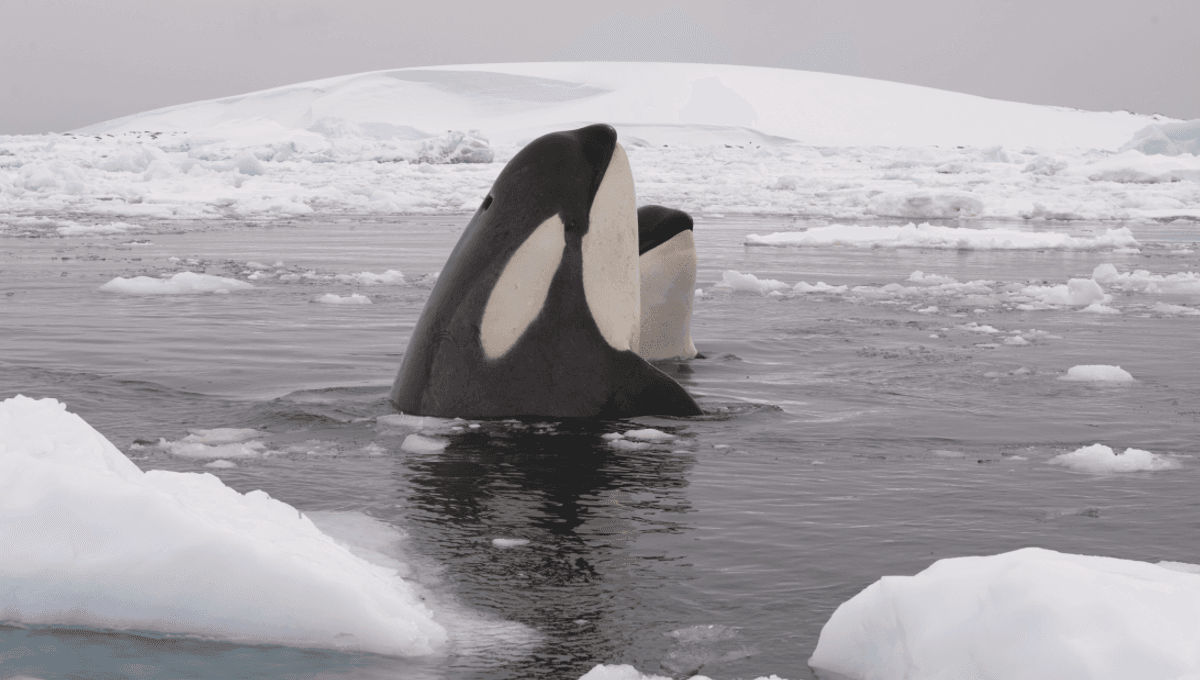
The skincare habits of a pod of orcas have been captured in world-first footage of a rare behavior. Filmed as part of National Geographic WILD’s new series Incredible Animal Journeys, the clip shows the animals using the rough surface of icebergs as a way to exfoliate irritants. Does skincare get any fresher?
The behavior appears to be an adaptation that helps these animals to overcome one of the downsides of swimming in the chilly waters of Antarctica.
“We all need to look after our skin, but this pod of orca has a unique problem. Unable to molt in these sub-zero seas, a yellowy green algae builds up on their skin,” producer Sarah Gibbs told Newsweek. “This family pod has learned to exfoliate the outer surfaces of their skin using icebergs as scratching posts. It shows just how smart and resourceful orca are, and shows another side to these ‘killer’ whales.”
An alternative solution to the pesky algae is to swim around 11,200 kilometers (7,000 miles) to a climate where the water is warm enough for the orcas to molt, clearing their skin. As anyone who’s ever given up on a lengthy skincare regimen can relate to, sometimes that’s just too much effort for a scrub.
“If you’re feeling the itch, you have to look for something closer to home,” Gibbs continued.
Incredible Animal Journeys Starts on 3rd December at 8pm on National Geographic WILD
When they do make the journey, it’s thought to be the longest migration any animal makes solely for the purposes of looking after their skin, and NatGeo’s is the first documentary to capture it in a video. Incredible Animal Journeys starts on December 3 at 8pm GMT on National Geographic WILD.
Orca (Orcinus orca) are famously intelligent animals, but they aren’t the only cetaceans known to practice complex skincare routines. In 2022, researchers captured footage of a group of dolphins self-medicating by rubbing themselves against corals.
Aggravating the corals caused them to release mucus, containing 17 active metabolites in the lab which had antibacterial, antioxidative, hormonal, and toxic properties. It seems the dolphins make use of the bioactive compounds in the coral species’ exudates to make their skin happier.
Considering we humans have tried everything from puppy fat and salty owls, to skull lichen and sleeping with mummified remains to cure our ills, rubbing against some ice or corals doesn’t seem so weird. And let’s not even go there with the boob toothpaste thing.
Source Link: Orca Spa Video Becomes World-First Footage Of An Incredibly Rare Behavior